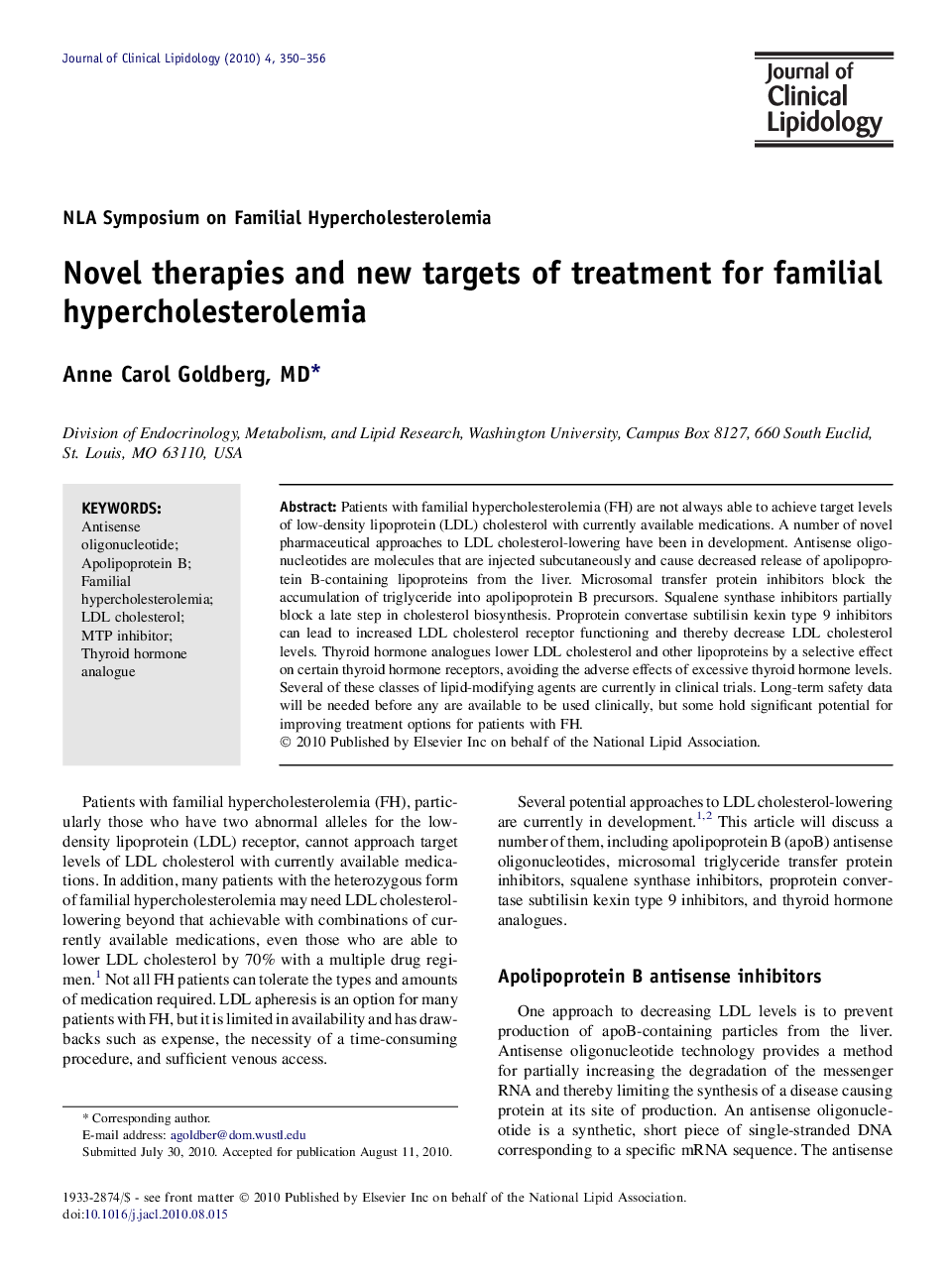| Article ID | Journal | Published Year | Pages | File Type |
|---|---|---|---|---|
| 2966317 | Journal of Clinical Lipidology | 2010 | 7 Pages |
Patients with familial hypercholesterolemia (FH) are not always able to achieve target levels of low-density lipoprotein (LDL) cholesterol with currently available medications. A number of novel pharmaceutical approaches to LDL cholesterol-lowering have been in development. Antisense oligonucleotides are molecules that are injected subcutaneously and cause decreased release of apolipoprotein B-containing lipoproteins from the liver. Microsomal transfer protein inhibitors block the accumulation of triglyceride into apolipoprotein B precursors. Squalene synthase inhibitors partially block a late step in cholesterol biosynthesis. Proprotein convertase subtilisin kexin type 9 inhibitors can lead to increased LDL cholesterol receptor functioning and thereby decrease LDL cholesterol levels. Thyroid hormone analogues lower LDL cholesterol and other lipoproteins by a selective effect on certain thyroid hormone receptors, avoiding the adverse effects of excessive thyroid hormone levels. Several of these classes of lipid-modifying agents are currently in clinical trials. Long-term safety data will be needed before any are available to be used clinically, but some hold significant potential for improving treatment options for patients with FH.
